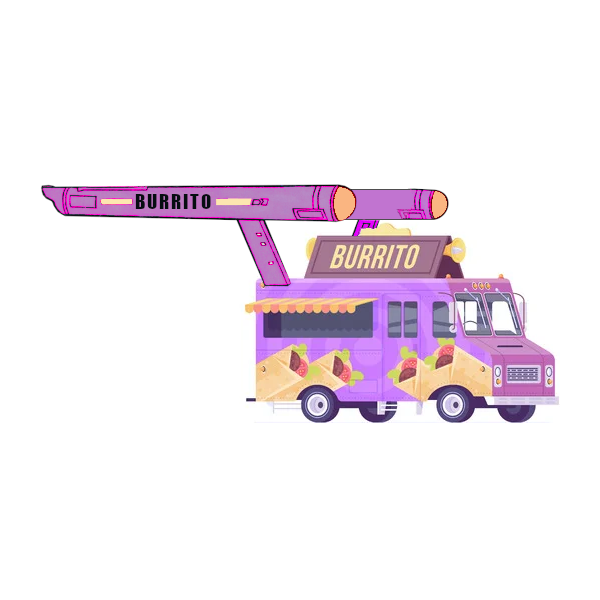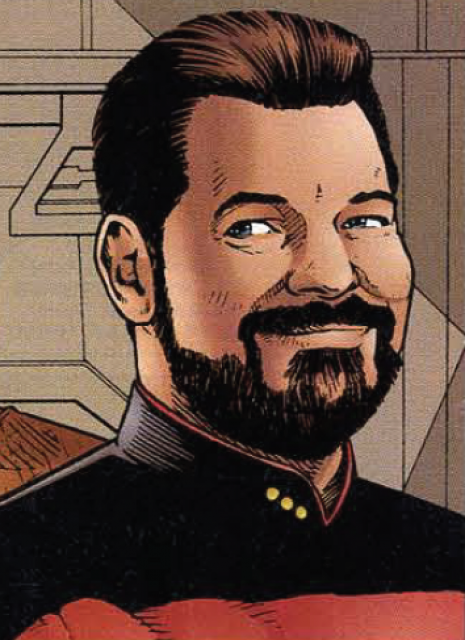Source Page. Credit is to SMBC-Comics and even more credit to @aperson@beehaw.org who noticed it was missing and found the credit in this comment. Sorry about that and thanks, you're awesome aperson <3
Two people can be literally the same person. Your argument only works if there's a magic law that says there can be only one real 'you'.
The “magic law” is just the consequence of what it means to be the “same” person. To be the same person, you have to, among other similarities, take up the same spatial-temporal space. This is why if we ask “is Bruce Wayne the same person as Batman” one of the first thoughts is “you know, I’ve never seen them in the same room before.”
Maybe what you’re getting hung up on here is the split. Let’s imagine there is one river (river A) which goes for a bit before it forks and becomes river b and river c. In some sense, we could say that both river b and river c are river a. But if you’re river b, then river c is not the same as you, and vice versa.
In the moment of copying, they're the same, after that, they're diverging through different experience. The difference in atoms/location is irrelevant from the perspective of that person's consciousness. They both are the original in any sense that counts for them or others.
Am I not the same person as I was yesterday?
Sure, I am now different both to a molecular level and due to the experiences I have made since, but for all linguistic and social intents and purposes, I am the same person I was yesterday. Because "person" is already an arbitrary term we put on this collection of atoms merely based on continuity, like the Ship of Theseus. If we went by "spatial-temporal space", then I would be space dust, a collection of bacteria, fluids, cells, proteins... and who "I" am would change every few seconds.
The same is true for two Rikers. That's the entire point of the episode; that despite them diverging at the point of the cloning into two different people, they are still the same person and need to live with that.
The same is true for two Rikers. That’s the entire point of the episode; that despite them diverging at the point of the cloning into two different people, they are still the same person and need to live with that.
I don't think that as the point of the episode. As their lives diverged their interests and desires did so as well. They were similar, yes, but still different people. Will was promoted after successfully evacuating the people of Nervala IV and he became focused on his career. Thomas was stuck on Nervala IV thinking of the woman he left behind, and when he's rescued he wants to rekindle that relationship whereas Will let it fizzle.
To say nothing of Thomas eventually choosing to join the Maquis. That is not something we'd ever see from Will.
Will: Good luck, Will.
Thomas: I actually thought I might go with the name Thomas.
Troi: Your middle name.
Will: I guess we really are different. I never really cared for that name.
Thomas: Well, I sort of like it. I guess I'd better get going.
You're the kind of guy to argue that when I cut a sandwich in half then there are two sandwiches.
There's actually a book series I enjoy, the Bobiverse series, that does an interesting take on it. In it a human, the eponymous Bob, gets digitized and becomes the AI of a Von Neumann probe. He's given the mission to make copies of himself, explore the galaxy, and build colonies for humanity.
Later on in the series...
As he makes more copies of himself, it's found that the personality of the copies diverge more and more the farther from the original that they descend, and they eventually devise a statistical way to measure this divergence. No two extant Bobs are ever the same person, even though they're identical copies.
However, it's also discovered that if a Bob makes copy of himself, shuts down his original AI matrix, and only then the copy is turned on, that Bob will have no measurable divergence from the one he was cloned from. It's measurably the exact same individual, and it implies that in-universe there's some fundamental, tranferable property of identy. Arguably some kind of "soul".
Not only that, if the original AI matrix is turned back on then that one starts displaying the divergence that was expected of the copy. This is used in one case to transmit the data of a Bob to a waiting, empty AI matrix around another star to avoid physical travel and side step the teleporter problem.
There's a lot of sci-fi hand waving in it, but I thought it was a fun way to approach the question.
Okaaaay, just because you've brought it up.....
Transporters in Star Trek are shown to definitely not be duplication machines. "Our Man Bashir" (DS9) is probably the most definitive proof of that.
Personally, I think transporter technology explains the staunch atheist (but still open-minded and sometimes spiritualist) Federation mindset: they know that their entire being can be reduced to a matter/energy stream. The transporter makes a devastating philosophical challenge to the idea of a "soul." Which is, ironically, why so many Federation officers refuse to accept anything that challenges that assumption (VOY "Sacred Ground").
Adding to your examples in the cannon of Star Trek the teleporter is not a murder machine, except for all those transporter accidents. In "Daedalus" (ENT) the creator of the teleporter somehow proved it, even if not every officer believes that yet.
Real life though, I'd never set foot in a transporter. A real life, Star Trek like transporter would definitely be a murder machine though.
The real life version wouldn't even make a copy somewhere else, it would just be that phone booth from Futurama.
https://www.schlockmercenary.com/ webcomics has a very interesting story arc about teleporters and why they were replaced.
If you stepped through a time-travel portal, your conscience would effectively not exist between the original time and the time the portal leads to, yet no one would call you dead. If you could somehow install your mind into a new body, let's say you download it into a flashdrive and plug it into someone else's brain while your original body lays without a mind, people may call our body dead but not you. So when there is a continuity of self between the person who steps inot the teleporter and the person who steps out, I will never call that a death, that's silly.
I was specifically talking about forwards time travel to distinguish between someone's mind existing in the world and them being alive as two separate states. In teh backwards timetravel example, what makes them different people? I would say legally they are the same person, and the same ethics and morals apply to them, and many people who know the version of them in the past would probably recognize them as the person they know albeit a bit different. Are you not the same person you were yesterday? Or a minute ago?
at teh end of the day we don't have a definition of consciousness, so issues that would come down to it can't be decided.
I guess if he remembers the conversation he knows it’s not true. If he doesn’t remember the conversation, you get more amusement next time you tell him.
Actual teleportation is a legit property of quantum mechanics (e.g. in a real transporter you're not killed/cloned -- but "you" do cease to exist for some x period of time). Also a teleporter doesn't need a 'Heisenberg compensator': you want the data to maintain its superposition.
The only caveat is the teleportation must be at or slower than speed of light.








